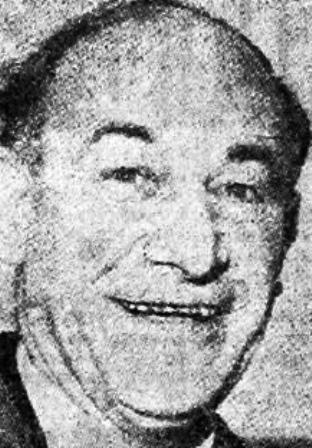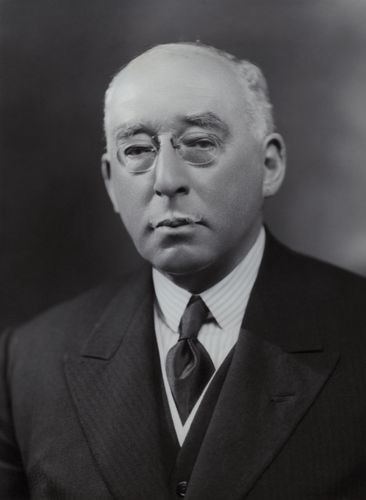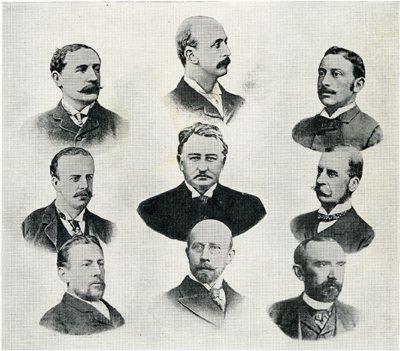|
Presidents Of Zambia
The president of the Republic of Zambia is the head of state and head of government of Zambia and is the highest executive authority in the country. The president is elected by popular vote for a five-year term and is responsible for the administration of the government, overseeing the implementation of national policies, and representing Zambia in international affairs. The office was established at Zambia's independence in 1964. The current president is Hakainde Hichilema, who assumed office on August 24, 2021, following the 2021 presidential election where his party, the United Party for National Development, won a majority. The president's role includes appointing the Cabinet, serving as Commander-in-Chief of the Zambian Defence Force, and ensuring the enforcement of laws. The office was first held by Kenneth Kaunda following independence in 1964. Since 1991, when Kaunda left the presidency, the office has been held by six others: Frederick Chiluba, Levy Mwanawasa, Rupiah ... [...More Info...] [...Related Items...] OR: [Wikipedia] [Google] [Baidu] |
Hakainde Hichilema
Hakainde Hichilema (born 4 June 1962), often known by his initials HH, is a Zambian businessman, farmer, and politician who is the seventh and current president of Zambia since 24 August 2021. After having contested five previous elections in 2006, 2008, 2011, 2015 and 2016, he won the 2021 presidential election with 59.02% of the vote. He has led the United Party for National Development since 2006 following the death of the party founder Anderson Mazoka. Prior to his election, Hichilema was a major opponent of Edgar Lungu, the president of Zambia from 2015 to 2021. On 11 April 2017, Hichilema was arrested and charged with treason, a move that was seen as an illegitimate act by Lungu to silence a political rival. The arrest and charge were widely condemned, with protests held in Zambia and abroad, demanding Hichilema's release and condemning the increasing authoritarianism of Lungu's regime. Hichilema was released from prison on 16 August 2017, and the charge of treason w ... [...More Info...] [...Related Items...] OR: [Wikipedia] [Google] [Baidu] |
Rupiah Banda
Rupiah Bwezani Banda (19 February 1937 – 11 March 2022) was a Zambian politician who served as the fourth president of Zambia from 2008 to 2011, taking over from Levy Mwanawasa. Banda was an active participant in politics from early in the presidency of Kenneth Kaunda, during which time he held several diplomatic posts. In October 2006, he was appointed the vice-president by Mwanawasa. After Mwanawasa suffered a stroke in June 2008 and died later that year, he became acting president. During the 2008 Zambian presidential election, 2008 elections, he narrowly won against opposition leader Michael Sata of the Patriotic Front (Zambia), Patriotic Front. He was later defeated in the 2011 Zambian general election, 2011 election and succeeded by Sata. Early life Banda was born in the town of Miko, Gwanda, Southern Rhodesia (now Zimbabwe); his parents had come from Northern Rhodesia to find employment prior to his birth, and he was sponsored by a local Dutch Reformed Church preacher ( ... [...More Info...] [...Related Items...] OR: [Wikipedia] [Google] [Baidu] |
African National Congress
The African National Congress (ANC) is a political party in South Africa. It originated as a liberation movement known for its opposition to apartheid and has governed the country since 1994, when the 1994 South African general election, first post-apartheid election resulted in Nelson Mandela being elected as President of South Africa. Cyril Ramaphosa, the incumbent national president, has served as president of the ANC since 18 December 2017. Founded on 8 January 1912 in Bloemfontein as the South African Native National Congress, the organisation was formed to advocate for the rights of Bantu peoples of South Africa, black South Africans. When the National Party (South Africa), National Party government came to power 1948 South African general election, in 1948, the ANC's central purpose became to oppose the new government's policy of institutionalised apartheid. To this end, its methods and means of organisation shifted; its adoption of the techniques of mass politics, and ... [...More Info...] [...Related Items...] OR: [Wikipedia] [Google] [Baidu] |
Duncan Sandys
Duncan Edwin Duncan-Sandys, Baron Duncan-Sandys (; 24 January 1908 – 26 November 1987), was a British politician and minister in successive Conservative governments in the 1950s and 1960s. He was a son-in-law of Winston Churchill and played a key role in promoting European unity after World War II. Early life Sandys, born on 24 January 1908 at the Manor House, Sandford Orcas, Dorset, was the son of George John Sandys, a Conservative Member of Parliament (1910–1918), and Mildred Helen Cameron. Sandys's parents divorced in January 1921 when he was 12 years old. His mother married Frederick Hamilton Lister in October that year, becoming Mildred Helen Lister. He was educated at Eton College and Magdalen College, Oxford. Early career Sandys entered the diplomatic service in 1930, serving at the Foreign Office in London as well as at the embassy in Berlin. He became Conservative Party Member of Parliament (MP) for Norwood in south London in a by-election in March 1935, ... [...More Info...] [...Related Items...] OR: [Wikipedia] [Google] [Baidu] |
Secretary Of State For Commonwealth Relations
The secretary of state for Commonwealth relations was a Secretary of State (United Kingdom), secretary of state in the Government of the United Kingdom, responsible for dealing with the United Kingdom's relations with members of the Commonwealth of Nations (its former colonies). The minister's department was the Commonwealth Relations Office (CRO). The position was created in 1947 out of the old positions of Secretary of State for Dominion Affairs and Secretary of State for India. In 1966, the position was merged with that of the Secretary of State for the Colonies to form that of Secretary of State for Commonwealth Affairs, which was in turn merged with the Foreign Secretary (United Kingdom), Secretary of State for Foreign Affairs in 1968 to create the new position of Foreign Secretary (United Kingdom), Secretary of State for Foreign and Commonwealth Affairs. The equivalent position today is the Foreign Secretary (United Kingdom), Secretary of State for Foreign, Commonwealth and D ... [...More Info...] [...Related Items...] OR: [Wikipedia] [Google] [Baidu] |
1964 Northern Rhodesian General Election
General elections were held in Northern Rhodesia on 20 and 21 January 1964. There were two voter rolls for the Legislative Council, a main roll that elected 65 seats, and a reserved roll that elected 10. Africans elected the main roll, whilst Europeans elected the reserve roll. Other ethnicities were allowed to choose which roll to be part of. The United National Independence Party won the elections, taking 55 of the common roll seats. Its leader, Kenneth Kaunda became Prime Minister, leading the country to independence in October that year, at which point he became President. Voter turnout was 94.8% for the main roll and 74.1% for the reserved roll. Background The Northern Rhodesian African National Congress (NRANC) sought to delay the elections, claiming that twelve of its candidates had been prevented from registering, and its request for the nomination process to be extended was granted. NRANC leader Harry Nkumbula claimed that failure to postpone the elections would lead to " ... [...More Info...] [...Related Items...] OR: [Wikipedia] [Google] [Baidu] |
Governor Of Northern Rhodesia
The governor of Northern Rhodesia was the representative of the British monarch in the self-governing colony of Northern Rhodesia from 1924 to 1964. The governor was appointed by the Crown and acted as the local head of state, receiving instructions from the British government. Establishment of the office The office was established on 20 February 1924, when the ''Northern Rhodesia Order in Council, 1924'' was adopted.''Northern Rhodesia Order in Council, 1924'' It provided that "In place of the Administrator for whose appointment provision is made by the Northern Rhodesia Order in Council, 1911, there shall be a Governor and Commander in Chief in and over Northern Rhodesia...". List of governors of Northern Rhodesia For continuation after independence, ''see: ''President of Zambia See also * President of Zambia * Prime Minister of Zambia * Governor-General of the Federation of Rhodesia and Nyasaland References {{DEFAULTSORT:Governor Of Northern Rhodesia Rhodesia, N ... [...More Info...] [...Related Items...] OR: [Wikipedia] [Google] [Baidu] |
Monarch Of The United Kingdom
The monarchy of the United Kingdom, commonly referred to as the British monarchy, is the form of government used by the United Kingdom by which a hereditary monarch reigns as the head of state, with their powers Constitutional monarchy, regulated by the British constitution. The term may also refer to the role of the British royal family, royal family within the Politics of the United Kingdom, UK's broader political structure. The monarch since 8 September 2022 is King Charles III, who ascended the throne on Death and state funeral of Elizabeth II, the death of Queen Elizabeth II, his mother. The monarch and British royal family, their immediate family undertake various official, ceremonial, diplomatic and representational duties. Although formally the monarch has authority over the Government of the United Kingdom, governmentwhich is known as "His Majesty's Government (term), His/Her Majesty's Government"this power may only be used according to laws enacted in Parliament of th ... [...More Info...] [...Related Items...] OR: [Wikipedia] [Google] [Baidu] |
British South Africa Company
The British South Africa Company (BSAC or BSACo) was chartered in 1889 following the amalgamation of Cecil Rhodes' Central Search Association and the London-based Exploring Company Ltd, which had originally competed to capitalize on the expected mineral wealth of Mashonaland but united because of common economic interests and to secure British government backing. The company received a Royal Charter modelled on that of the British East India Company. Its first directors included The 2nd Duke of Abercorn, Rhodes himself, and the South African financier Alfred Beit. Rhodes hoped BSAC would promote colonisation and economic exploitation across much of south-central Africa, as part of the "Scramble for Africa". However, his main focus was south of the Zambezi, in Mashonaland and the coastal areas to its east, from which he believed the Portuguese could be removed by payment or force, and in the Transvaal, which he hoped would return to British control. It has been suggested that ... [...More Info...] [...Related Items...] OR: [Wikipedia] [Google] [Baidu] |
Southern Rhodesia
Southern Rhodesia was a self-governing British Crown colony in Southern Africa, established in 1923 and consisting of British South Africa Company (BSAC) territories lying south of the Zambezi River. The region was informally known as South Zambesia until annexation by Britain, at the behest of Cecil Rhodes's British South Africa Company (for whom the colony was named). The bounding territories were Bechuanaland (Botswana), Northern Rhodesia (Zambia), Portuguese Mozambique (Mozambique) and the Transvaal Republic (for two brief periods known as the British Transvaal Colony; from 1910, the Union of South Africa and, from 1961, the Republic of South Africa). Since 1980, the colony's territory is the independent nation of Zimbabwe. This southern region, known for its extensive gold reserves, was first purchased by the BSAC's Pioneer Column on the strength of a mineral concession extracted from its Matabele king, Lobengula, and various majority Mashona vassal chiefs in 18 ... [...More Info...] [...Related Items...] OR: [Wikipedia] [Google] [Baidu] |
Northern Rhodesia
Northern Rhodesia was a British protectorate in Southern Africa, now the independent country of Zambia. It was formed in 1911 by Amalgamation (politics), amalgamating the two earlier protectorates of Barotziland-North-Western Rhodesia and North-Eastern Rhodesia.''Commonwealth and Colonial Law'' by Kenneth Roberts-Wray, London, Stevens, 1966. p. 753 It was initially administered, as were the two earlier protectorates, by the British South Africa Company (BSAC), a chartered company, on behalf of the British Government. From 1924, it was administered by the British Government as a protectorate, under similar conditions to other British-administered protectorates, and the special provisions required when it was administered by BSAC were terminated.Northern Rhodesia Order in Council 1924 (SR&O 1924/324), S.R.O. & S.I. Rev VIII, 154 Although under the BSAC charter it had features of a charter colony, the BSAC's treaties with local rulers, and British legislation, gave it the status of ... [...More Info...] [...Related Items...] OR: [Wikipedia] [Google] [Baidu] |
Prime Minister Of Zambia
The prime minister of Zambia was the head of government of Zambia. From 1973 to 1975, Mainza Chona was the first person to hold the position following independence from the United Kingdom (Kenneth Kaunda was the only prime minister of Northern Rhodesia in 1964, before it became independent as Zambia). The position of the prime minister of Zambia was abolished in 1991, in the last months of Kaunda's presidential term. Since then, the President of Zambia serves as both the head of state and the head of government. History Northern Rhodesia When the country was founded as the British colony of Northern Rhodesia separate from British South Africa Company rule in the Rhodesias, the elected Legislative Council was created. At the time, the office of prime minister did not exist, with all executive power being vested in the governor of Northern Rhodesia. However, the leader of the largest elected party on the council was considered as the "unofficial" prime minister. When Northern ... [...More Info...] [...Related Items...] OR: [Wikipedia] [Google] [Baidu] |








